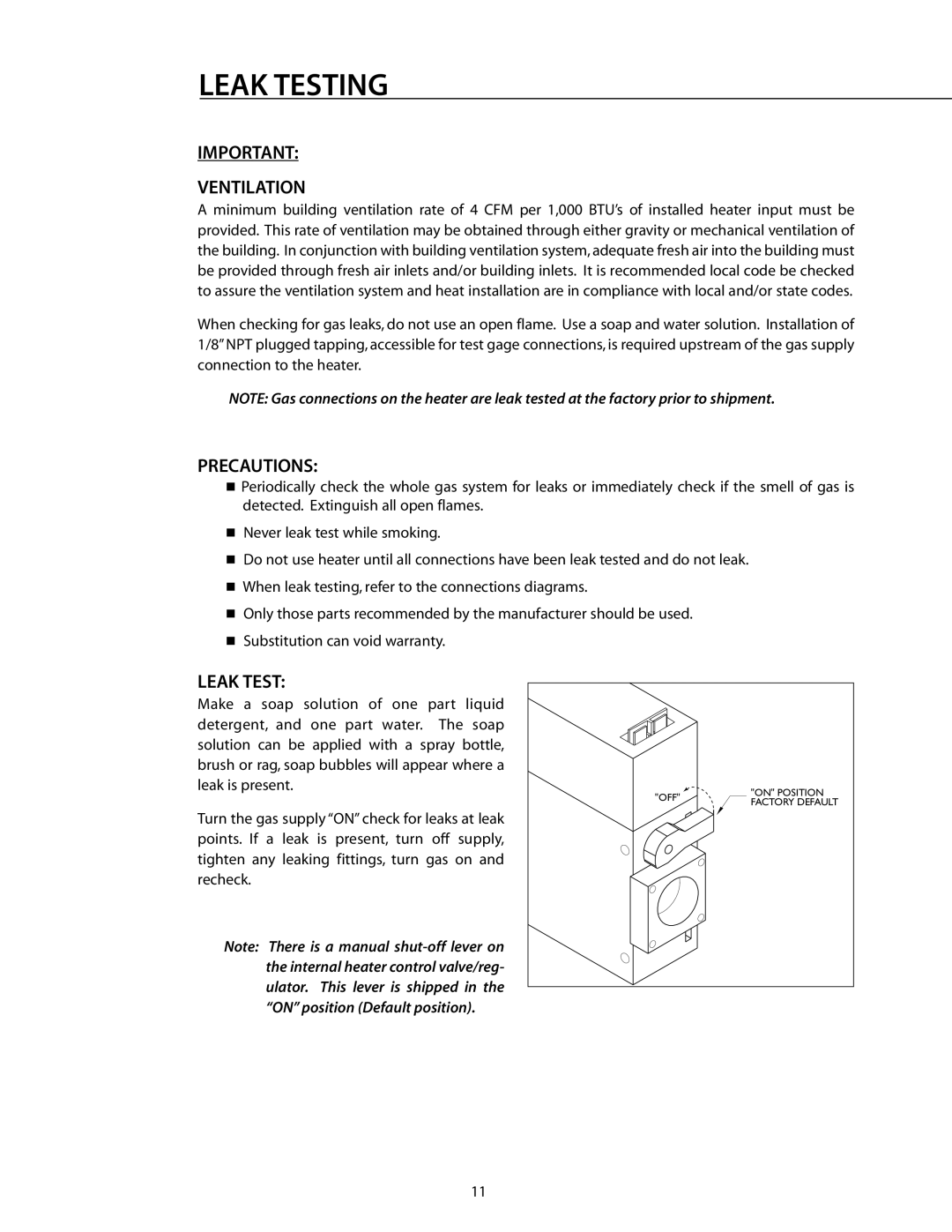
LEAK TESTING
IMPORTANT:
VENTILATION
A minimum building ventilation rate of 4 CFM per 1,000 BTU’s of installed heater input must be provided. This rate of ventilation may be obtained through either gravity or mechanical ventilation of the building. In conjunction with building ventilation system, adequate fresh air into the building must be provided through fresh air inlets and/or building inlets. It is recommended local code be checked to assure the ventilation system and heat installation are in compliance with local and/or state codes.
When checking for gas leaks, do not use an open flame. Use a soap and water solution. Installation of 1/8”NPT plugged tapping, accessible for test gage connections, is required upstream of the gas supply connection to the heater.
NOTE: Gas connections on the heater are leak tested at the factory prior to shipment.
PRECAUTIONS:
Periodically check the whole gas system for leaks or immediately check if the smell of gas is detected. Extinguish all open flames.
Never leak test while smoking.
Do not use heater until all connections have been leak tested and do not leak.
When leak testing, refer to the connections diagrams.
Only those parts recommended by the manufacturer should be used.
Substitution can void warranty.
LEAK TEST:
Make a soap solution of one part liquid detergent, and one part water. The soap solution can be applied with a spray bottle, brush or rag, soap bubbles will appear where a leak is present.
Turn the gas supply “ON” check for leaks at leak points. If a leak is present, turn off supply, tighten any leaking fittings, turn gas on and recheck.
Note: There is a manual
"OFF" | "ON" POSITION | |
FACTORY DEFAULT | ||
|
11
